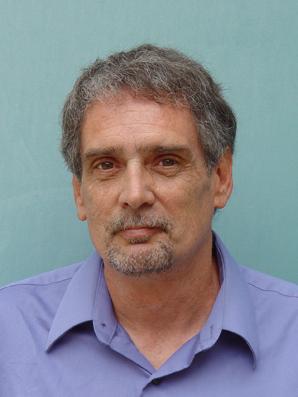California’s economy may be on the rise but homelessness is still a major problem throughout the state and the rest of the country.
Nationally, 21 out of 10,000 people suffer homelessness, but according to a report by the National Alliance to End Homelessness, America’s homeless population has been reduced by 1 percent since 2009, despite a sagging economy and a rise in unemployment.
In Glendale, homelessness was down by 25 percent, from 412 in 2011 to 299 in 2012.
GCC alumna Ivet Samvelyan, the city of Glendale’s Homeless Programs Supervisor, said much of this is due to funding received by the Department of Housing and Urban Development.
Samvelyan said Glendale receives between $2.5 million and $2.8 million annually. This funding helps set up emergency shelters, transitional housing and outreach programs that help those in need to eventually find permanent housing. There are also programs to teach basic health care, job training and job search, veterans services, homelessness prevention and mental health services.
Many of these services are also funded privately. Ascencia, at 437 Fernando Court in Glendale, provides help with housing, emergency shelter, health and mental health services as well as case management. They are Glendale Community Service’s lead outreach program. The Catholic Charities, the Salvation Army, the YWCA and the Glendale Free Clinic have offices to provide assistance in Glendale.
The competition for funding begins again in January, when communities nationwide must take a census of their homeless population called a “Point-In-Time” count. H.U.D. requires that this count be completed in one 24 hour period to establish how many people are without homes on any given night.
Glendale’s Continuum of Care program is seeking volunteers to assist in its upcoming 2013 census.
The point-in-time count must be accomplished in one day. Besides looking in the obvious places such as shelters, two-person teams, accompanied by a safety officer, will walk and drive through the entire city looking for homeless people and conducting a survey which helps to establish demographics important to servicing their needs.
The census is a difficult process and the one-day restriction sometimes causes problems. Samvelyan said, “If I know a [certain] client and he can’t be found that day, he doesn’t get counted.” The count also produces an occasional duplication that must be caught during the data entry phase. Still, the National Alliance to End Homelessness believes the point-in-time count to be the most accurate measure available.
The next point-in-time count will be taken on Jan. 30, 2013. Volunteers will be asked to attend a one day training program on Jan. 20, 2013 at 10 a.m. at 141 N. Glendale Ave., Room 202, Glendale, Perkins Community Room 118. Volunteers may also be asked to return for a few days after the count to enter additional content
. The census is only one of the criteria used to compete for funds.
Glendale established a Continuum of Care program to provide services and housing for the homeless. Nationwide Continua were implemented in 1995 by the Department of Housing and Urban Development, which requires communities to submit only one application for McKinney-Vento Homeless Assistance Grants. This is a highly competitive process and involves high standards to participate.
According to the H.U.D. website, Continua of Care must provide:
outreach, intake, and assessment in order to identify service and housing needs and provide a link to the appropriate level of both;
emergency shelter to provide an immediate and safe alternative to sleeping on the streets, especially for homeless families with children;
transitional housing with supportive services to allow for the development of skills that will be needed once permanently housed and;
permanent and permanent supportive housing to provide individuals and families with an affordable place to live with services if needed.
The rules are complicated and confusing, but Samvelyan said Glendale has done very well meeting the criteria for these grants.
In comparison, Samvelyan said Pasadena reported around 1,000 homeless in 2012 to Glendale’s 299, yet Pasadena receives approximately the same amount of federal funding.
Glendale has an overall population of 191,719 as of the 2010 census.
Anyone interested in helping with the Point-in-Time count may contact: Ivet Samvelyan at (818) 548-3720 or email [email protected].
Glendale’s Community Outreach is also seeking volunteers for their Homeless/Senior Connect Day on Dec. 13 which will be held at the Glendale Armory, 220 E. Colorado St. from 8:30 a.m. until 3 p.m. This will raise money for non-profit and government services. Volunteers may contact Elizabeth Tismeer at [email protected] or call (818) 409-0506.

